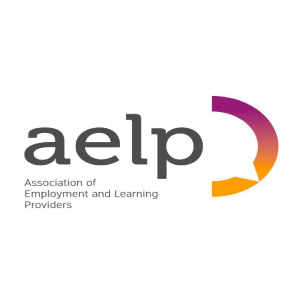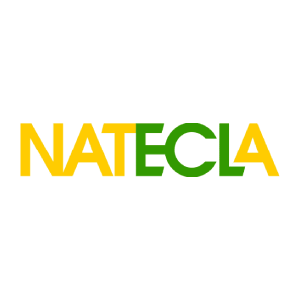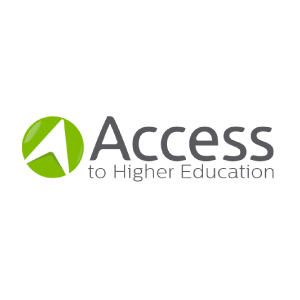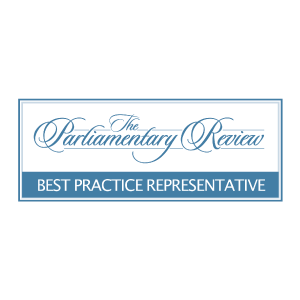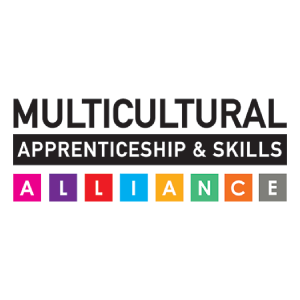-

#1 ESOL Provider
-

Multi-Award Winning Charity
-

Supporting Over 200k Learners A Year
-

Established in 1975
-

Dedicated Customer Support Team
-

Leading Access Validating Agency
-

Recognised by Ofqual, QAA and CCEA
-

#1 ESOL Provider
-

Multi-Award Winning Charity
-

Supporting Over 200k Learners A Year
-

Established in 1975
-

Dedicated Customer Support Team
-

Leading Access Validating Agency
-

Recognised by Ofqual, QAA and CCEA
-

#1 ESOL Provider
-

Multi-Award Winning Charity
-

Supporting Over 200k Learners A Year
-

Established in 1975
-

Dedicated Customer Support Team
-

Leading Access Validating Agency
-

Recognised by Ofqual, QAA and CCEA
- Home / Funding
Ascentis Funding Information and Advice for FE and Skills Providers
For providers in the further education and skills sector in England, understanding how education and training programmes are funded and resourced can be difficult to comprehend, and often require frequent updating.
On the following pages, Ascentis will provide you with a brief overview of the fundamentals of the funding landscape and system, and highlight the key differences between the funding of young people and adults in the different settings for learning, including classroom and work-based learning.
In addition to these pages, our offer of webinars, blogs, workshops and conferences will provide regular updates on funding and funding related issues.

From April 2025, the Department for Education formally took over all the responsibilities of the Education and Skills Funding Agency (ESFA) and it is now responsible for the funding of education and skills for young people aged 16 to 19, and adults in England, who are not resident in devolved authorities.
The DfE shares responsibility with the Mayoral Combined Authorities (MCAs) and the Greater London Authority (GLA) for funding adult education and training nationally and in their local areas. So, by 2025 to 2026 almost 70% of Adult Skills Funding (ASF) is delegated to these devolved authorities.
In relation to all young people aged 16 and over in England, and adults aged 19 and over, who are not residents in devolved authorities, the DfE funds learners studying nationally recognised qualifications, such as GCSEs and A Levels, technical and vocational qualifications, including the new T Levels, and other learning aims that may not lead to nationally recognised qualifications, i.e. non-regulated learning aims.
All learners must meet certain criteria to be eligible to be funded, e.g. residency in England, and the qualifications they undertake must also be eligible for funding.
Currently, there are reviews of qualifications at level 2 and below, and at level 3, particularly of technical and vocational qualifications, and some qualifications will no longer be eligible to be publicly funded. Providers are advised to always check with Ascentis to ensure that their programmes are still eligible to be funded.
The latest information on available qualifications, apprenticeship standards, T levels and units can be found on ‘Find a Learning Aim – Education Funding’ (FALA).
For example, the Ascentis Level 1 Award in Essential Digital Skills for Work and Life (60370749) is eligible for funding for young people aged 16-19 and for adults aged 19 and over as part of the digital entitlement.
For young people in maintained schools, academies, colleges, and other classroom-based learning settings, including Independent Specialist Providers, the DfE is responsible for the funding of their programmes of learning up to the age of 19, and for 19–25-year-old learners with learning difficulties and/or disabilities who have an Education, Health and Care Plan (EHCP).
Following Professor Wolf’s review of vocational education in 2011, programmes of learning for 16-19 year-olds known as study programmes were introduced, and these should provide young people with opportunities to progress to further study, including higher education, employment, apprenticeships and to independent living.
Study programmes contain the following elements, depending on the learners’ start points and expected destinations:
- Core programme of academic or vocational qualifications that stretch the learners and prepare them for progression to further study, employment or apprenticeships, e.g. A levels and GCSEs, level 2 and 3 certificates and diplomas, and T levels
- English and maths if the learners have not yet achieved these at GCSE grade 4 to 9
- Tutorial, enrichment and other non-qualification activities to support their personal and character development
- Work experience or industry placements to give learners the opportunity to develop work related skills and broaden their career aspirations
The DfE funds the whole of a study programme undertaken by a 16-19 year-old learner based on the total planned hours for all elements in an academic year, with an expectation that the average length of programme will be about 640 hours per year (more for the new T levels) for a full-time learner. For a 16 or 17 year-old on a study programme (not T level), the maximum funding band is 5 at a minimum of 580 annual planned hours and the national rate for that learner before any uplifts is £5105 in 2025 to 2026. Higher band values (6 to 9) are attached to T level learners, whose programmes are also planned to last two years.
Fig 1 Study Programme bands for 2025 to 2026
| Band | Annual planned hours | Category | Funding rate per student £ |
| 5 | 580 plus | 16 and 17 year-old students.
Students aged 18 and over with high needs.
|
5105 |
| 4a
4b |
485 plus
485 – 579 |
Students aged 18 and over who are not high needs.
16 and 17 year-olds and students aged 18 and over with high needs.
|
4223 |
| 3 | 385 – 484 | All students | 3434 |
| 2 | 300 – 384 | All students | 2715 |
| 1 | Up to 299 hours | All students | 5105 (per full time equivalent)
|
Funding uplifts are applied to learners on programmes whose hourly costs of delivery are higher, e.g. catering, engineering and construction, as well as to providers located in London and areas close to London.
For those learners who have not yet achieved GCSE English and maths grades 4 to 9, it is a condition of funding that the young person continues to study them up to achieving them at these grades. For some learners, Functional Skills qualifications in English and maths may be more appropriate.
For 2025 to 2026 the English and maths condition has been changed to include an expectation that learners who have not yet achieved GCSE English and maths grades 4 to 9, will study these subjects for a minimum of 100 per year per subject. The assumption is that this study should be stand-alone, whole-class, in-person teaching, with any additional support, such as small group tuition or online support, supplementary to these minimum classroom hours. In future any providers who do not meet this condition, could find themselves losing funding for learners who are either not continuing to study English and maths, or not studying these subjects for enough hours.
The funding for young people on study programmes and T levels is allocated to providers on the basis of their learner numbers on a lagged basis and the characteristics of their learners and programmes, so additional funding is available for high cost and value subjects such as engineering and construction, for learners on study programmes and T levels who have not yet achieved at least a grade 4 in GCSE English or maths, for disadvantaged learners, for learning support including for learners with high needs, and for financial support for learners.
Ascentis’ short online qualification offer to young people includes courses which can be used for induction, to enrich their study programme and provide useful life skills, e.g. Ascentis Level 2 Award in Mental Health and Well-being (60346863).
The latest rules and guidance for using 16 to 19 formula funding allocated by DfE can be found on 16-19 education: funding guidance.
The latest information on 16 to 19 funding which show the changes DfE are making for 16 to 19 funding for the academic year 2025 to 2065 and to provide you with the latest updates can be found on 16 to 19 funding: information for 2025 to 2026.
The funding rates and the formula used in the funding arrangements for 16 to 19 year-olds can be found at Funding guidance for young people 2025 to 2026: funding rates and formula.
For 2024 to 2025, as part of the reforms of the further education funding and accountability system, the Adult Education Budget (AEB) became the Adult Skills Fund (ASF). The ASF is managed by the DfE outside of devolved areas, and by Mayoral Combined Authorities (MCAs) and the Greater London Authority (GLA) in devolved areas (for learners resident in these areas).
It funds a wide range of learning aims and programmes for adults, including nationally recognised qualifications, as well as quality assured non-qualification activities. The range extends to skills provision for the unemployed, workplace learning, pre-apprenticeships, community learning and independent living skills.
Some of the learning aims and programmes form part of the fully funded national entitlements for adults aged 19-23 years who have not yet achieved the equivalent of 5 GCSEs (free level 2 offer) or 2 A levels (free level 3 offer), e.g. Ascentis Level 3 Access to HE Diploma Childhood Studies (40010880). The legal entitlement for 19-23 year-old adults without their first level 2 or 3 means that these learners do not have to find 50% of the basic cost of the course as a tuition fee, so removing a potential barrier to participation.
Since April 2022, the extended Free Courses for Jobs offer has enabled unemployed and low waged adults, including those aged 24 and over, to undertake fully funded courses in specific sector subject areas where there are skills shortages, e.g. engineering, construction, logistics, health and social care, science, ICT, hospitality and catering, even if they are already qualified at level 3 and above.
Adults who have not yet achieved GCSE English and maths at grade 4, and those who are assessed at below level 1 in Essential Digital Skills, are also entitled to study these subjects, including approved stepping stone learning aims and units, without having to pay tuition fees. Unemployed learners of all ages as well as employed and self-employed adults on low earnings (less than £25,750 annual gross earnings for 2025 to 2026 for DfE funded adults) who cannot contribute towards the cost of co-funding fees, are also fully funded. The low earnings threshold is higher than the DfE rate in several combined authorities.
Adult ESOL learners are normally co-funded and so would have to pay a contribution to the tuition fee, unless they are unemployed or on low earnings.
There are other situations where ESOL learners may be fully funded, e.g. under devolved authority arrangements or discretions for other state benefits, but always check with your management information or funding compliance team.
Under ASF local flexibilities providers can offer adults bespoke locally designed learning, that can include both qualifications and non-regulated learning, to support progression to full level 2, to retrain and upskill learners already in receipt of level 2 or above, or, to refocus or restart a career if unemployed, e.g. Ascentis entry level 3 award in Skills for Employment (60135712).
Adults with learning difficulties and/or disabilities are also entitled to learning support funding to help them complete their learning programmes. This is funded at a fixed rate of £150 per month for each month the support is provided. Should support costs more than £150 in a month, this can also be claimed as excess learning support from the DfE or devolved authority.
Adult Skills Fund (ASF): Funding Rules for 2025 to 2026 sets out the rules that apply to DfE funded ASF for the 2025 to 2026 funding year.
As part of the reforms to the adult funding system, the previous funding methodology based on a ‘single activity matrix’ was replaced by a simpler formula, and community learning, formula funded non-qualification activities and innovative programmes for employers have been merged into new category of Tailored Learning.
Previously, AEB funding for qualifications or learning aims was determined by the ‘Single Activity Matrix (SAM)’ which measured their funding value in guided learning or total qualification hours and the programme weighting for the qualification, e.g. Ascentis entry level 3 award in Essential Digital Skills at £300 for 50 hours. Different learning aims had different programme weightings that reflected the hourly costs of delivery of the aim, with subject areas such as catering, engineering and construction getting the higher weightings.
Figure 2 AEB Single Activity Matrix (applied nationally till 2023 to 2024)
Some qualifications had their funding values set as a matter of policy, e.g. GCSEs, A levels Functional Skills and Access to HE Diplomas, e.g. Ascentis Access to HE Diplomas is funded at a base rate of £3,022.
| Funding band (hours) | Activity type | PW A Base (unweighted) | PW B Low | PW C Medium | PW D High | PW E or G Specialist |
| Up to 2 | Very small provision (1) | £14 | £16 | £18 | £22 | £24 |
| 3 to 4 | Very small provision (2) | £21 | £24 | £27 | £34 | £36 |
| 5 to 6 | Very small provision (3) | £35 | £39 | £46 | £56 | £60 |
| 7 to 12 | Small provision (1) | £50 | £56 | £65 | £80 | £86 |
| 13 to 20 | Small provision (2) | £100 | £112 | £130 | £160 | £172 |
| 21 to 44 | Small provision (3) | £150 | £168 | £195 | £240 | £258 |
| 45 to 68 | Medium provision (1) | £300 | £336 | £390 | £480 | £516 |
| 69 to 92 | Medium provision (2) | £450 | £504 | £585 | £720 | £774 |
| 93 to 100 | Medium provision (3) | £600 | £672 | £780 | £960 | £1,032 |
| 101 to 196 | Large provision (1) | £724 | £811 | £941 | £1,159 | £1,248 |
| 197 to 292 | Large provision (2) | £1,265 | £1,417 | £1,645 | £2,025 | £2,176 |
| 293 to 388 | Large provision (3) | £1,987 | £2,225 | £2,583 | £3,179 | £3,417 |
| 389 to 580 | Very large provision (1) | £2,573 | £2,882 | £3,345 | £4,117 | £4,425 |
| 581 to 1060 | Very large provision (2) | £4,170 | £4,670 | £5,421 | £6,671 | £7,172 |
| 1061 or more | Very large provision (3) | £6,602 | £7,395 | £8,583 | £10,564 | £11,356 |
Figure 3 Qualifications that had their funding band set as a matter of policy
| Qualification type | PW A Base (unweighted) | PW B Low | PW C Medium | PW D High | PW E or G Specialist |
| GCE AS-level | £724 | £811 | £941 | £1,159 | – |
| GCE A-level | £1,987 | £2,225 | £2,583 | £3,179 | – |
| GCSE | £724 | £811 | £941 | £1,159 | – |
| GCSE short course | £300 | £336 | £390 | £480 | – |
| Functional skills in English | £724 | – | – | – | – |
| Functional skills in entry level maths | – | – | £941 | – | – |
| Functional skills in IT | – | £336 | – | – | – |
| Access to Higher Education | £3,022 | £3,384 | £3,928 | £4,835 | £5,197 |
The programme weighting is determined by the cost per hour involved in delivering different qualifications, e.g. Ascentis Access to HE Diploma in Science is weighted at B, 1.12 and £3,384.
For each adult learner the weighted value of their learning aim or aims would then be multiplied by a disadvantage uplift, to take account of disadvantaged post codes and, area cost uplifts for providers based in London and close to London.
The new simpler formula introduced in 2024 to 2025 applies to learning aims funded by the ASF and Free Courses for Jobs offer. Each learning aim is assigned a Guided Learning Hours value (GLH) by its awarding organisation as recorded on Ofqual’s register of regulated qualifications. This value is then multiplied by the funding rate band for that qualification.
Figure 4 shows the new DfE adult funding rates from 2024 to 2025.
Fig 4
| New bands | Base | Low | Medium | High | Specialist |
| New hourly skills funding rate £ | 6.00 | 7.20 | 8.40 | 9.60 | 12.00 |
For example, Medicine and Dentistry will attract an hourly rate of £8.40, so Access to Nursing with a GLH of 600 will earn 600 x £8.40 = £5,040 per learner.
Disadvantage and area cost uplifts will also be applied to each learner’s learning aims.
For about 70% of learning aims, this change in the funding methodology meant an increase in funding rates, but for about 20%, it meant a fall. It is important that providers take account of these changes in ASF rates from the AEB rates when planning their curriculum offer.
For example, Access to HE and ESOL learning aims generally went up, but employability skills and personal development programmes saw a fall in their funding rates.
Most other aspects of adult funding have not changed from the previous system.
Adult Skills Fund (ASF): Funding Rates and Formula for 2025 to 2026 sets out details of the DfE funding system for the ASF for the 2025 to 2026 funding year.
It should also be noted that the former Single Activity Matrix (SAM) is still being used as a basis for funding rates by several combined authorities, and even in those which are using the new national DfE rates, the SAM can be applied to some of their provision, e.g. formula funded non-regulated provision. Always check with your devolved authority.
The other major change in adult skills funding is the bringing together of community learning, formula funded non-regulated learning and innovation for employers into ‘tailored learning.’
The primary purpose of ‘tailored learning’ is to help learners into employment and to progress to further learning, in line with the overall purpose of the ASF. It also supports wider outcomes including using it to improve health and wellbeing, equip parents/carers to support their child’s and develop stronger communities.
Two points to note about ‘tailored learning’ initially is that it applies to DfE funded provision and not provision delivered to residents living in devolved combined authority areas, e.g. GLA, GMCA, WMCA, and the list of learning aims eligible to be funded is as updated on ‘Find A Learning Aim (FALA)’.
Providers may wish to offer ‘tailored learning’ because of the characteristics of their learners, e.g. learners with special education needs, pre-entry learners, learners furthest way from learning or the labour market.
Such learning could include
- independent living skills or engagement learning supporting adults to operate confidently and effectively in life and work
- engaging and/or building confidence
- employability and labour market re-entry
- health and wellbeing
- equipping parent/carers to support children’s learning
- improving essential skills (English, maths and ESOL)
- developing stronger communities
- innovative provision to meet emerging needs of employers.
For ‘tailored learning’ there are several eligibility principles which providers must observe, and these are like those that previously applied to ‘non-regulated learning’:
- It must not be provision linked to UK visa requirements
- It must not be provision linked to occupational regulation unless there is an agreed concession in place
- It must not be restricted to being delivered to employees of only one employer
- It must not be learning, for example, ‘induction to college’, that should be part of a learner’s experience
- It must not be a non-regulated version of a regulated qualification
- It must not be above notional level 3
- It must not be used primarily or solely for ‘leisure’ purposes.
Additionally, the DfE or devolved authority would expect providers to encourage and support all learners to progress on to new or more stretching provision to help them into more formal learning or employment. DfE or devolved authority would not expect to see multiple enrolments on similar level courses, or a repeat of similar learning aims where this does not benefit the learner’s development.
Where you are delivering tailored ‘non-regulated learning’, you must ensure you have appropriate and robust quality assurance processes in place.
Recognising and Recording Progress and Achievement (RARPA) can provide this assurance and Ascentis can help you establish this process and advise on how best to manage it.
Figure 5 Six-step RARPA process (LWI 2017)
| Step 1 | Aims meeting the needs of individuals and communities
|
| Step 2 | Starting points for learners accurately assessed
|
| Step 3 | Challenging learning objectives set and aligned with local priorities
|
| Step 4 | Feedback to learners on their progress
|
| Step 5 | End-assessment is in place, accurately recorded with evidence and certification
|
| Step 6 | Learner progression is actively monitored, e.g. to further learning, employment, volunteering |
In terms of management information and audit the same rigour in analysis and collation of achievements and outcomes is required for tailored ‘non-regulated learning’ provision as for regulated qualifications. Where appropriate this should include outcomes gathered from sample post course reviews. Stage one of the RARPA process integrates outcomes required to meet local needs and effective collation of achievements and completions, and supports evidence reporting for the DfE and devolved authorities. The sixth stage can also be a recurrent theme of the first five stages in ensuring learners make progress to their chosen destinations. From pre-enrolment advice and guidance to final assessment, providers should be focused on the purpose of the learning programme for the individual and how it will enable them to move onto the next stage of their lives.
From August 2019, Mayoral Combined Authorities (MCAs) and the Greater London Authority (GLA) have been given responsibility to ensure eligible learners aged 19 and over who reside in their area have appropriate education and training. Each devolved authority is responsible for funding adult education and skills in their local areas, so the approach to this budget is now be based on each region’s specific education and training needs for learners aged 19 and over.
For 2024 to 2025 the ASF was devolved to the following MCAs and through a delegation agreement to the Mayor of London for the Greater London Authority (GLA):
- Greater Manchester
- Liverpool City Region
- West Midlands
- Tees Valley
- West of England
- Cambridgeshire and Peterborough
- Greater London
- North East
- South Yorkshire
- West Yorkshire
Although the devolved areas can apply the national funding rules, rates, and formula in most part, they do have powers to set their own funding and performance management rules, e.g. GLA sets higher funding rates for English and maths qualifications and a higher threshold for the low earnings threshold.
Furthermore, providers operating in different devolved areas need to be aware that not all the devolved authorities were able to apply the new higher DfE funding rates for 2024 to 2025, partly because of affordability issues. So, in some cases a learning aim can have different funding values depending on where the learners come from. Some combined authorities’ rates are higher than the new national rates for 2025 to 2026.
For example, the Ascentis Award in ESOL skills for life writing entry 3 at 90 GLH (60142741), has an DfE rate of £540, £621 in GLA, £567 in West of England, £479.25 in Greater Manchester and £504.90 in the West Midlands.
With the introduction of Local Skills Improvement Plans (LSIPs) led by Chambers of Commerce and other employer representative bodies, and devolved authorities which can set their own priorities for skills development, providers must be aware of these priorities and reflect these in their curriculum offers. If providers are delivering to eligible adults in a devolved area, they will have to manage separate contracts for nationally funded programmes such as skills bootcamps or to residents living outside the devolved authority, and the devolved ASF.
Plans to extend the devolution of adult skills funding have been proposed to include county and city deals as part of the levelling up agenda, e.g. East Midlands Counties Combined Authority from 2025, although the previous government’s consultation on the future of funding of adult skills did raise some issues about the relationship between national and devolved funding arrangements.
Under this current government, three more authorities have been given responsibility for adult skills funding:
- East Midlands Counties
- York and North Yorkshire
- Cornwall
Advanced learner loans are available to adults to meet the costs of tuition on a range of approved qualifications at levels 3 to 6. Individuals aged 19 and over on the first day of their learning aim are eligible for loans.
They are not means-tested and so remove a barrier to participation for adult learners. Learners are entitled to access up to four loans, which they can take out either one after the other, or at the same time.
Where a provider accesses direct ASF funding to deliver a first full Level 3 qualification to a learner who is aged 19 to 23, or to a learner aged 24 and over under the level 3 adult offer, a learner cannot access a loan for the same qualification delivered at the same time.
The Student Loans Company pays the provider on a monthly basis for the individual learner as long as the learner is retained and the provider can also draw down additional support funding for the learner to cover costs of childcare or learning support from the loans’ bursary fund.
Ascentis offers a suite of level 3 Access to HE Diplomas which are approved for advanced learner loans in several subject areas including Education, Childhood Studies, Science and Humanities.
The advanced learner loans funding and performance management rules for the 2025 to 2026 funding year can be found at Advanced learner loans funding rules: 2025 to 2026.
The rules apply to all providers of education and training who hold a loans facility and loans bursary fund agreement with the DfE. This agreement allows providers to receive loans payments from the Student Loans Company (SLC) on behalf of learners and loans bursary payments from DfE.
The demand from learners for loans to fund their studies has not been as high as expected, and has fallen recently due to the extension of the Free Courses for Jobs offer to adults who are already qualified at level 3 and above.
One point to note is that the new adult skills funding rates in the ASF do not apply to loan funded learning aims, which will continue to use the rates formerly on the Single Activity Matrix.
An apprenticeship is a job with training. Through an apprenticeship, an apprentice will gain the technical knowledge, practical experience and wider skills and behaviours that they need for their immediate job and future career. Learners aged 16 years and over may choose an apprenticeship as a work-based route to qualification.
The apprentice gains this through: formal off-the-job training (which is fundable by government, provided both the individual and the programme can comply with these funding rules); and the opportunity to apply these new skills in a real work environment (in the productive job role) through on-the-job training, which is the responsibility of the apprentice’s employer.
All apprentices are required to spend at least 6 hours a week of their working hours on off-the-job training, in addition to any time allocated for them to achieve English and maths qualifications required for their apprenticeship standard. They will have to complete these as part of the ‘gateway’ process that shows they are ready for end point assessment (EPA) with an independent EPA organisation.
Learners, whose employers decide to invest in their training and assessment, can be funded as apprentices as long as their training provider (or employer if they train their own staff) is on the Apprenticeship Providers and Assessment Register (formerly RoATP).
Apprenticeship standards are placed into one of 30 funding bands, with the upper limit of those bands ranging from £1500 to £27000, e.g. adult care worker level 2 was in band 4 with an upper limit of £3000. Employers negotiate a price for their apprentices’ training and assessment (including the cost of end point assessment) with the chosen training provider up to the upper limit. As a result of changing conditions in the apprenticeship market, funding bands are subject to review, and may be changed in either direction, e.g. adult care worker level 2 has been increased to £4000.
Employers with annual pay bills of more than £3 million pay into a digital account which is then topped up by 10% by the government. Funds in digital accounts will expire after 24 months if unused.
Originally, employers that did not pay the levy or did not have sufficient funds in their levy accounts had to contribute 5% of the training and assessment cost, the government paid the remaining 95%.
For smaller employers who offer apprenticeships to young people, 100% of the funding is provided by the government and the government also pays providers for the delivery of English and maths required for completion of the standard, as well as learning support funding for apprentices with learning difficulties and/or disabilities.
Some changes were introduced for new starts from 2024. Non-levy paying employers who took on new apprentices aged 16 to 21 from 1st April 2024 were not required to make any co-investment. Also, the proportion of levy funds that employers can transfer to other business was increased to 50% from April 2024.
The latest apprenticeship funding rules for 2025 to 2026 apply to apprenticeship starts between 1 August 2025 and 31 July 2026. There are different funding rules for different apprenticeship start dates. You must follow the funding rules that apply to each apprentice.
For the latest versions of the rules go to Apprenticeship funding rules 2025 to 2026.
The apprenticeship service offers employers and training providers an extensive range of services which promote and expand the apprenticeship provision.
You can watch very useful webinar recordings on the apprenticeship service’s You Tube channel Using the apprenticeship service – You Tube.
Sector-based work academies (SWAPs) have been designed to help Jobcentre Plus claimants build their confidence and improve their job prospects, and help employers in sectors with vacancies fill them. Lasting up to 6 weeks, they consist of three elements
- Pre-employment training
- Work experience placement
- Guaranteed job interview
The ASF or devolved authority local flexibility funds pre-employment training, lasting 2-3 weeks, the DWP funds other elements, including travel and childcare whilst on placement.
The National Skills Fund was a new source of funding, over 5 years from 2020 as part of the ‘Plan for Jobs’, mainly to fund adults who wanted to upskill or retrain, to meet the needs of a changing labour market. It has been extensively used to fund skills recovery measures in the aftermath of Covid-19, including skills bootcamps and the new lifetime skills guarantee.
Skills Bootcamps target industry sectors with significant skills shortages as priorities and provide access to almost 400 free courses. They are suitable for employed, recently unemployed, self-employed or returning to work adults aged 19 and over. Currently, free level 3 courses of up to 16 weeks are available in engineering, construction, computing, science, HGV driving, health and social care. Providers offering these courses earn 40% of total course fee after the participant has attended 15 GLH, 30% when the participant has a job interview and 30 % when the participant funds a job or moves to a more senior role with the same employer.
The extension of the free level 3 offer for adults from April 2021 to those aged 24 and over although funded by the National Skills Fund is routed as Free Courses for Jobs through the ASF nationally or through the Mayoral Combined Authorities for residents living in those areas. A further extension of the free level 3 offer to adults who are unemployed or earning below the national minimum wage so that they can study these qualifications irrespective of any prior qualifications came into effect from April 2022. The funding rates for these are uplifted for certain level 3 qualifications depending on size (GLH) – £600 for qualifications 360 GLH and over, or £150 for qualifications 359 GLH and less. The free level 3 offer for adults is now referred to as Free Courses for jobs (FCfJ) offer. There is some flexibility in the application of the offer at local level to reflect specific sectoral priorities (different from national priorities), e.g. in the West Midlands Combined Authority, Access to HE diplomas in skill shortage sectors are included in the offer.
Access to HE Diplomas can be fully funded for adult learners aged 19 to 23 years who have not yet attained a first full level 3 qualification (equivalent to 2 A levels) by the Adult Skills Fund (formerly Adult Education Budget). This would be either nationally by the DfE (from April 2025) or by a Mayoral Combined Authority, for residents of that devolved authority.
In 2024 to 2025 the national rates for Access to HE diplomas were increased from the previous levels as part of the simplification of the funding formula for adult learners.
The increases were in some cases significant but please remember that the Guided Learning Hours for these are now assumed to be 600. The table below shows some examples of the new rates compared to the previous rates in the Single Activity Matrix (SAM).
It is also important to note that although some of the devolved authorities were able to use the new improved rates, this is not the case for all of them, e.g. Greater Manchester Combined Authority (GMCA) or West Midlands Combined Authority (WMCA). So, providers need to know whether their Access to HE programmes are funded at the new national rates or differently. Some of the devolved authorities also apply uplifts to provision for residents of their area, e.g. West of England Combined Authority applies a 5% general uplift to eligible provision.
The table below shows how rates of funding for Access to HE Diploma in Education (40010910) can differ.
| Funder | Basic rate of funding £ | Weighted rate of funding £ |
| DfE ASF | 3,600 | 4,320 |
| Advanced Learner Loan | 3,022 | 3,384 |
| GMCA ASF | 3,218 | 3,604 |
| WMCA ASF | 3,391 | 3,797 |
| West of England ASF | 3,780 | 4,536 |
For all other learners aged 19 and over, Access to HE Diplomas are funded by an Advanced Learner Loan. If a learner completes the Access to HE course and goes on to complete a higher education qualification the loan is written off. Currently, the funding rates for loan funded diplomas are still based on the rates applied before 2024 to 2025.
If you have any questions, one of our friendly team members would be happy to help you.
- hello@ascentis.co.uk
- 01524 845046
- Ascentis House
Lancaster Business Park
3 Mannin Way
Lancaster
LA1 3SW







